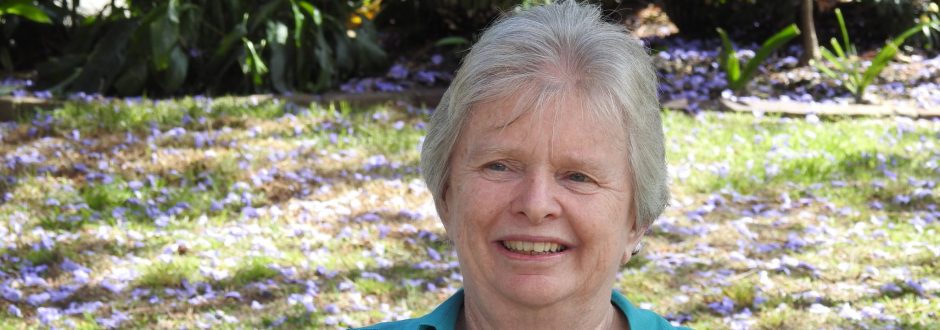May small nations like Kiribati be supported to hold onto their precious traditional values as they find their way in a complex twenty-first century world, writes Good Samaritan Sister Clare Condon.
BY Clare Condon SGS
Recently I visited Tarawa, Kiribati, for the perpetual profession of the religious vows of Sister Tibwau Matia, one of five Kiribati Good Samaritan Sisters living in their homeland. Following the profession ceremony and the excited celebrations with family, friends and sisters after the ceremony, I visited the sisters at Abaokoro on North Tarawa, the other side of the lagoon on this small coral atoll.
There in Tarawa I was near the equator, the divide between the northern and southern hemispheres, and not far from the International Date Line. Here I was, looking out at the Pacific Ocean from the geographical centre of the earth community.
Yet few people know that Kiribati even exists. As a country it has one of the lowest numbers of visitors in any one year. In 2016, about 5,000 people visited this island nation of 33 atolls, 21 of which have inhabitants. Its total land mass is 811 square kilometres. Its vast oceans extend to 3.5 million square kilometres.
The people of Kiribati have lived in the Central Pacific for hundreds of years. They have supported themselves on the fruits of the tropics, such as fish, breadfruit and coconuts. Everything they used over those years was biodegradable. But not now, as the goods of the Western world make their way into their lives.
There are metals, plastics and other non-biodegradables gathering on their sparse islands. Every day, as the outside world slowly enters, life is changing dramatically for these community-oriented people. Their traditional ways are under pressure, and yet at the same time, they are holding onto their traditional communal values.
But as I sat at Abaokoro, looking out across the Pacific Ocean at sunrise, I could have been in paradise, away from all the cares of our global community. However, I could not forget that the growing population of 110,000 is facing many issues: rising sea levels; shortage of fresh, clean water; unemployment; abuse of their fishing rights by larger nations; increasing pollution; and isolation. According to the Kiribati government, 65 per cent of the population is 18 years and under, youth unemployment is 30 per cent, and the Gross Domestic Income per capita in 2014 was just $1,838.
Let me focus on just one of these issues – their fishing rights. The people of Kiribati have vast sea resources for fishing; their sea resource is as large as Australia’s land resource. Yet they do not have the means of protecting their waters and their fish from illegal, unregulated and unscrupulous nations. Tuna fleets from China, Taiwan, Japan and America fish these waters for minimal returns to the Kiribati people. According to Greenpeace, “Two monster boats, Albatun Tres and Albacora Uno, can catch more in three combined fishing trips than Kiribati’s entire local fleet catches in a year”.
Greenpeace has mounted an appeal to bring these issues of the Pacific’s small nations to the world’s notice. They note, “On average a quarter of a million tonnes of tuna caught in Kiribati waters each year is shipped off to canneries and fresh sashimi markets around the world, leaving insufficient fish stocks to sustain local communities”.
While I was in Tarawa, one very informed Kiribati elder said to me: “They take our fish and we buy it back in toxic metal cans. This doesn’t make any sense”.
Australia and New Zealand are the two countries that consistently provide financial aid to Kiribati. Can some of this money not be directed to help this small island nation develop the necessary resources, for example, patrol vessels, to support their fishing rights, and so protect the Kiribati people’s basic resource – the fish in the sea?
In this way the people of Kiribati would be better assisted to become more economically self-sufficient. This could help Kiribati to build up its own modern fishing fleet and support its growing population with fresh fish and export fish. Surely this will enable Kiribati to acquire important resources for the nation’s ongoing life and development.
What does all this say to me? The ongoing danger in our global world is that might is right! Let us hope not. May small nations like Kiribati be supported to hold onto their precious traditional values as they find their way in a complex twenty-first century world; and may intelligent compassion overcome dominant greed when it comes to the valuable resources of their ocean.
